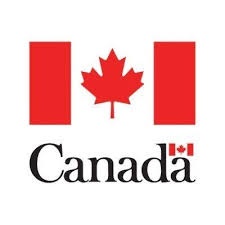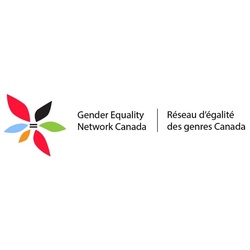
Closed
Search and Rescue New Initiatives Fund
Last Update: October 27, 2025
Canada
Funding for search and rescue initiatives
Grant and Funding
At a glance
Funding available
Financing goals
Research and experimental development
Eligible Funding
- Up to 95% of project cost
Timeline
- Open Date : November 1, 2023
- Closing date : January 24, 2024
Eligible candidates
Eligible Industries
- Transportation and warehousing
- Educational services
- Health care and social assistance
- Arts, entertainment and recreation
- Other services (except public administration)
- Public administration
Location
- Canada
Legal structures
- Non-profit
- Public or Parapublic institution
- For-profit business
Annual revenue
- All revenue ranges
Organisation size
- All organization sizes
Audience
- Indigenous Peoples
Non-profit candidates
Sector of operation
- Higher Education
- Research
- Social Services
- Emergency and Relief
- Environment
- International Activities
- Children and Youth Organizations
- Diversity and Inclusion
Target groups
- General public
- Children & youth
- Seniors
- Indigenous peoples
- People with disabilities
- Women & girls
- LGBTQ+ community
- Rural / Remote communities
- Nonprofits / charities
- Academia / students
- Community leaders
- Low-income individuals / families
- Minority groups
Revenue structures
- All structures
Scope
- Local
- Municipal
- Regional
- Provincial
- National
Overview
The Search and Rescue New Initiatives Fund (SAR NIF) offers up to $7.6 million annually to support projects that enhance search and rescue (SAR) prevention and response across Canada. Eligible activities include improving SAR effectiveness, promoting best practices, advancing cooperation, and supporting innovation in SAR systems.
Activities funded
- Coordinating multi-jurisdictional search and rescue (SAR) exercises.
- Conducting research and development initiatives relevant to SAR.
- Implementing information sharing projects within the SAR community.
- Developing and managing collective SAR data management or analysis systems.
Examples of admissible projects:
$ 90,000
Conduct a research study on improving SAR tactics for avalanche-prone regions
$ 75,000
Implement a community-based SAR training program to increase volunteer readiness
$ 58,000
Create a public awareness campaign to prevent common boating accidents
$ 140,000
Develop a new search and rescue drone technology for wilderness areas
$ 70,000
Launch an indigenous SAR training initiative to enhance local response capabilities
$ 170,000
Acquire state-of-the-art water rescue equipment for operations
Eligibility
- The applicant must be a not-for-profit Canadian organization, a Canadian volunteer association, a government entity (provincial, territorial, municipal, regional, or Indigenous), a Canadian university or educational institution, an Indigenous organization, or a for-profit Canadian organization provided the project is non-commercial in nature.
- The applicant must provide a minimum of 5% of the total project cost as in-kind and/or cash contributions, confirmed by the source.
- The project must support one of the Annual Priority Initiatives identified in the current SAR NIF Call for Proposals.
- The application must be complete, including the mandatory project budget, work plan, list of equipment/materials/supplies (if applicable), and any required letters of support or commitment.
- The applicant must be willing to report project results to the Government of Canada and consent to the collection and use of organizational and project data.
Who is eligible?
- Not-for-profit Canadian organizations
- Volunteer associations
- Provincial, territorial, municipal, regional, and Indigenous governments
- Canadian universities and educational institutions
- Indigenous organizations
- For-profit Canadian organizations (for non-commercial activities)
Who is not eligible
- Individuals (not organizations or companies).
- Federal departments and agencies.
- International organizations.
Eligible expenses
- Communications costs directly related to the project.
- Materials and supplies required for project delivery.
- Professional services (such as consultants or contractors specific to project needs).
- Project-related honoraria, if required.
- Rental expenses necessary to carry out project activities.
- Salaries for incremental project staff (new hires or backfill of current personnel involved in the project, if more cost-efficient than contracting).
- Travel expenses, including accommodation, meals/incidentals, and transportation (must not exceed National Joint Council rates and must be within Canada).
- Utilities required for the project (excluding ongoing operations and maintenance).
- Translation costs related to project activities or deliverables.
Eligible geographic areas
- All provinces and territories across Canada are eligible, including provincial, territorial, municipal/regional, and Indigenous communities.
Selection criteria
- Degree to which the project addresses the objectives and annual priorities of the national Search and Rescue (SAR) program.
- Alignment with the priorities of a supporting SAR partner and demonstration of their support or endorsement.
- Clarity in addressing the identified need through proposed project activities, expected results, and outcomes.
- Demonstrated management capacity of the applicant and assessment of financial risks.
- Consultation with a SAR partner during proposal development and the extent of their involvement or endorsement.
How to apply
1
Review Eligibility and Priorities
- Carefully read the Application Guide to understand eligibility criteria.
- Review the Call for Proposals to align your project with one of the annual priority initiatives.
- Consider contacting a SAR NIF partner to ensure your proposal aligns with program and partner priorities.
2
Prepare Your Application
- Download the Application for Funding and required templates from the program's website.
- Fill out the mandatory workplan, budget, and, if needed, the list of equipment, materials, and supplies templates.
- Draft a detailed project proposal addressing the annual priority initiatives.
- Ensure compliance with any addendum information such as equipment limitations and budget considerations.
3
Attend Virtual Information Sessions (Optional)
Participate in virtual sessions offered by SAR NIF for insights into the application process.
4
Submit Application
- Complete and upload the application and all supporting templates using the online platform.
- Ensure submission is completed before the deadline: January 24, 2024, at 12:00pm Pacific time.
5
Confirmation
- Await confirmation from SAR NIF team regarding the receipt of your application.
- Retain any confirmation emails or communication for your records.
6
Contact for Assistance
If you have questions or need accessibility assistance, contact the SAR NIF team.
Additional information
- Applicants are encouraged to attend virtual information sessions to better understand program priorities and application requirements.
- Projects must be new initiatives or the next phase of previously funded projects, with clear justification if continuing previous work.
- A minimum of 5% of project funding must come from sources other than Public Safety Canada, supported by letters of commitment.
- Organizations based in Québec may be subject to additional requirements as per the Act respecting the Ministère du Conseil exécutif (M-30).
Contacts
sarsecretariat-secretariatrs@ps-sp.gc.ca
Canada
Apply to this program
Frequently Asked Questions about the Search and Rescue New Initiatives Fund Program
Here are answers to the most common questions about the Search and Rescue New Initiatives Fund. This section explains what the program is, how much funding is available, eligibility requirements, application deadlines, and other important details to help you determine if this grant is right for your business.
What is the Search and Rescue New Initiatives Fund?
How much funding can be received?
What is the deadline to apply?
Who is eligible for the Search and Rescue New Initiatives Fund program?
What expenses are eligible under Search and Rescue New Initiatives Fund?
Who can I contact for more information about the Search and Rescue New Initiatives Fund?
Where is the Search and Rescue New Initiatives Fund available?
Apply to this program
More programs like this

Grant and FundingClosed
Industrial Research Assistance Program (IRAP) – AI Assist
National Research Council Canada (NRC)Supports Canadian SMEs in adopting and integrating advanced AI solutions

Grant and FundingClosed
Canada Public Transit Fund
Housing, Infrastructure and Communities CanadaSupports long-term public transit and active transportation infrastructure development

Researchers And FacilitiesPartnering and CollaborationWage Subsidies And InternsOpen
Mitacs Accelerate
MitacsConnect organizations with academia for research and innovation collaboration

Grant and FundingClosed
Canada Service Corps – Service Placements Regional Stream
Employment and Social Development Canada (ESDC)Funding for organizations to develop youth volunteer service placements

Grant and FundingClosed
ISED — Artificial intelligence (AI)
Innovation, Science and Economic Development Canada (ISED)Supports testing innovative AI prototypes for Canadian government needs

Grant and FundingOpen
Active Transportation Fund
Housing, Infrastructure and Communities CanadaSupports infrastructure projects for safer, more accessible active transportation

Partnering and CollaborationGrant and Fundingarchived
Equality for Sex, Sexual Orientation, Gender Identity and Expression Program
Women and Gender Equality Canada (WAGE)Supports equality initiatives for sex, sexual orientation, and gender identity

Grant and FundingClosed
Crime Prevention Action Fund (CPAF)
Public Safety Canada (PSC)Supports evidence-based crime prevention initiatives for at-risk communities

Grant and FundingClosed
Substance Use and Addictions Program (SUAP)
Health CanadaSupports innovative projects addressing substance use prevention and treatment

Grant and FundingOpen
Humanitarian Workforce (HWF) - COVID-19 and other large-scale emergencies
Public Safety Canada (PSC)Supports NGOs in emergency response and capacity building activities
Sign up to our platform to access the Search and Rescue New Initiatives Fund information sheet for free
Get access to 4,000+ programs, practical guides, personalized alerts, and an AI assistant to support your grant applications.